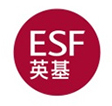Archive Index
Newsletter: Wednesday 1 November 2023

- Upcoming Dates
- Principal's Message
- K2 ESF Primary Allocation
- Parent Webinars
- Parent Hack: Labelled Praise & Positive Behaviours
- Helpful Links
Upcoming Dates
Click to download the 2023-24 Hillside Calendar. You can also access the school calendar via the ESF App.
1 November: Parent Webinar: Play & Agency
1 & 2 November: K1 Discovery Dome
15 November: Parent Webinar: Early Intervention & Student Support (Details below)
21-23 November: IB Evaluation Visit
Principal's Message
Dear Hillside Families
We hope you and the children had an enjoyable term break.
Thank you for all your support on the recent events. We had a fun-filled dress day day as we returned from the break. The teachers also had a successful Continuous Professional Development (CPD) day on Monday. All Hillside staff (Teaching and Educational Assistants) were involved in this full day of training. The morning focus was on enhancing our pedagogy, specifically looking at the Early Years in the Primary Years Programme (PYP).
We then shared the afternoon with a clinical psychologist, Dr Melissa Giglio, a leading psychologist in Hong Kong specialising in the therapy of Selective Mutism (SM). She provided an introductory overview of Selective Mutism in children 3 - 5 years old, highlighting approaches to address anxious behaviour and nurturing positive interactions. One thing that resonated with me was “labelled praise”, which parents easily adopt to foster poster behaviours. Learn more about “labelled praise” below.
Warm regards
Audrey
K2 ESF Primary Allocation
Similar to previous practice, the ESF Primary Admissions team will inform all ESF K2 parents of their allocation for a primary school in advance of receiving their offer. The Y1 allocation email to all K2 parents was sent on Friday, 20 October. Their official offer letters will be sent on Friday, 24 November, in which they are required to pay the deposit by 8 December to confirm their primary school place for August 2024.
If you did not receive your allocation email or have any further questions, please contact the ESF Primary Admissions Team at primary.admissions@esfcentre.edu.hk
Parent Webinars
Early Intervention & Student Support
Date & Time: Wednesday, 15 Nov @ 12:00noon
Registration link: [Web Link]
We want all children to feel safe, supported, and valued in their learning environment. At times, children may face barriers to learning due to a variety of reasons, from anxiety, social confidence, speech delays, sensory processing or other challenges.
In this session, our Vice Principal and Student Support Coordinator, Laura Bousefield, will talk about the importance of early intervention. Our external service providers will join her to share the resources and support accessible at Hillside.
Open Play & Agency
Thank you to parents who joined us for today's webinar to learn more about our Open Play programme and its key role in fostering children's agency. We value your thoughts and feedback and would greatly appreciate you giving us some time to fill out this survey. Your input will help us to plan future parent sessions. Many thanks! Here are the session recording and slides.
Hear it in the children’s own words why they like Open Play! Enjoy the video here.
Parent Hack: Labelled Praise & Positive Behaviours
Praise lets your child know they are doing the right thing (or the behaviour you like) and helps them build self-efficacy. Many parents and carers are already very good at giving unlabelled praise, but labelled or specific praise is much more powerful.
In general, using labelled praises is good practice because it reinforces positive behaviours, improves communication, boosts self-confidence, encourages positive habits, and strengthens the parent-child relationship. It creates a nurturing and supportive environment where children can thrive and develop into confident, responsible individuals.
Reinforces Positive Behaviour: Labelled praises focus on highlighting the specific positive behaviours, which helps children understand what is expected of them and reinforces those behaviours. By consistently using labelled praises, parents create a positive environment that encourages children to repeat those actions. This practice promotes the development of positive habits and behaviours that can benefit children throughout their lives.
Improves Communication and Strengthens Parent-Child Relationship: Labelled praises enhance communication between parents and children. Using descriptive language and specific labels, parents can effectively convey their appreciation and provide clear feedback about the behaviours they want to encourage. When parents acknowledge and appreciate their child's positive behaviours, it creates a sense of connection, trust, and mutual understanding. Children feel supported and valued, and this strengthens the bond between parent and child.
Building Self-Efficacy: When children receive specific and genuine praise for their positive actions, it boosts their self-confidence, self-esteem and learner agency. They feel recognised and valued for their efforts and achievements. This positive reinforcement helps children develop a positive self-image and a belief in their own abilities, which can have long-lasting effects on their overall wellbeing and growth.
Here are a few examples:

